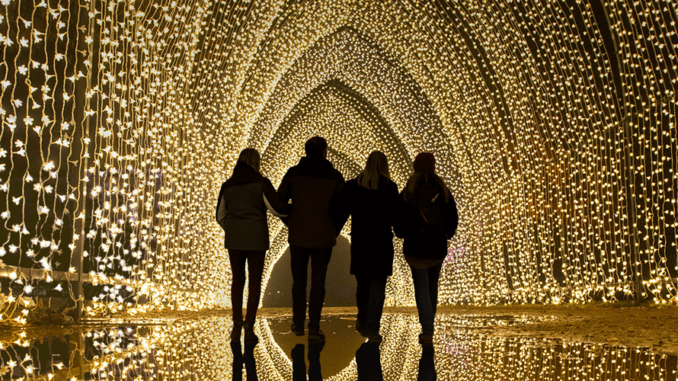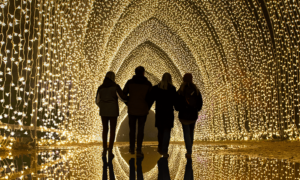

There is a memory of climbing the steps of the pulpit in my family’s local church at the age of nine to read at the Advent service. I clearly remember the first words from Isaiah, Chapter 9- “The people that walked in darkness hath seen a great light…..” There was also a realisation that these words were important but so far away from me in their meaning.
As a member of the church choir along with my sisters, the singing of Christmas carols was very much a part of our family tradition as we grew up. The most enjoyable and moving experiences occurred when a few of us went carol-singing unaccompanied on the streets, sometimes in cold, snowy weather. Somehow the words combined with the sound of the voices in harmony to raise an inner question. Who was this baby, and what does he represent for us thousands of years later?
Many years have passed, and our own children are almost adults, starting their journey in life. But that sense of inquiring wonder has never left me, and it is still brought into focus by the start of Advent. It is true that in many ways Christmas has become a deranged time of the year where we spend too much money on yet more “things” and eat and drink far too much. But the words of some of those simple carols are there as a reminder for another direction, not only to help others but also perhaps, to help ourselves. For example, in Good King Wenceslas:-
Therefore, Christian men, be sure
Wealth or rank possessing
Ye, who now will bless the poor
Shall yourselves find blessing
There is evidence that long before Christianity, the ancient peoples of Britain (and many other geographical regions) placed a great importance on the summer and winter solstices. In the long dark winters in particular, the celebration of light carries a special significance with the lessening hours of darkness a herald of the end of the winter. Christianity added religious symbolism to this period of winter, with the period of greatest darkness preceding the birth of the Messiah.
But what does Advent really mean for us now? The outer interpretation of Christmas is to give presents to others. And yet, in some of the old familiar carols there are some striking phrases such as this from O Little Town of Bethlehem:-
How silently, how silently the wondrous gift is given,
And God imparts to human hearts the blessings of His heaven
And from my favourite carol, In the Bleak Midwinter:-
What can I give Him,
Poor as I am,
If I were a Shepherd,
I would bring a lamb,
If I were a Wise Man,
I would do my part,
Yet what I can I give him,
Give my heart
Are these words a reference to a need to give something of oneself, to feel something lacking, in order to receive a deeper understanding?
The meaning of the word Advent is “coming”, and in relation to the Christian tradition this, of course, refers to the imminent arrival of the birth of Jesus (or the anniversary of his birth).
But the word advent is derived from an older Greek word, “Parousia” which means “being present” or “becoming present”. This can be interpreted as a reference to the coming of Jesus. However, could this also be a direct challenge to each one of us to be more present in our lives, echoing the recurring instruction in various chapters of the Bible and in other traditions to “Know Thyself”? In this context, is it possible for us to view the use of light and dark imagery as a representation of our state of fluctuating consciousness? If we are honest with ourselves, we have to admit that our turning thoughts or emotions are either rooted in events in the past or imagining what may happen in the future. We are hardly ever living in the present moment.
Perhaps the greatest gift of Advent is for us to feel that lack of inner connection between how we ordinarily live and our possibility to simply be more present with what is taking place in the moment, and in doing so serving something higher, through a search for inner quietness?
Geoff Butts